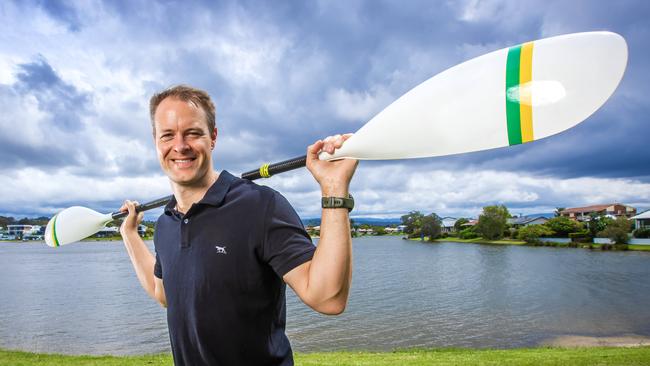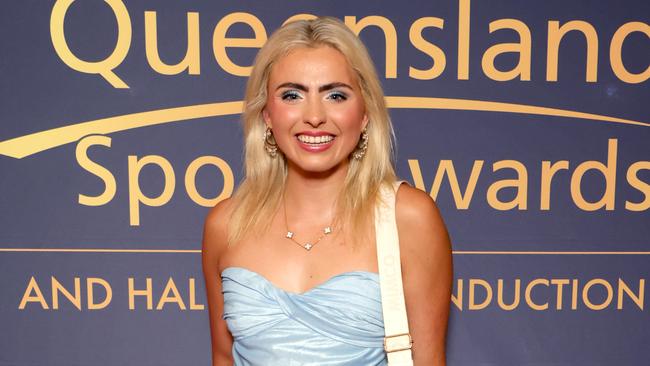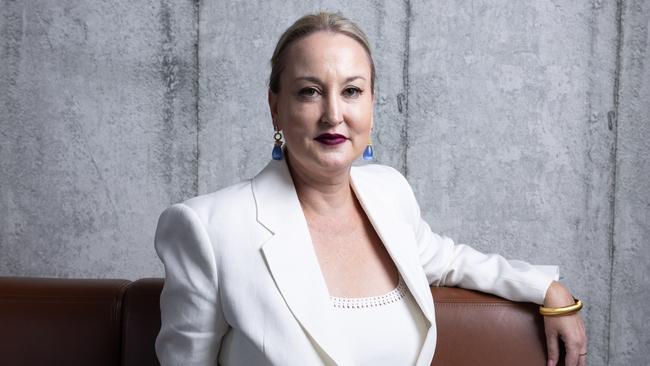Editorial: Olympic opportunity to make Brisbane accessible should not be wasted
Through the 2032 Games, Brisbane has the opportunity to become one of the world’s most accessible cities. It is an opportunity that cannot be wasted, writes The Editor.

Opinion
Don't miss out on the headlines from Opinion. Followed categories will be added to My News.
Through the 2032 Games, Brisbane has the opportunity to become one of the world’s most accessible cities.
It is an opportunity that cannot be wasted and should be at the forefront of the minds of Games organisers when thinking about legacy.
Australia’s Paralympic athletes are in the spotlight like never before. And rightfully so.
Take Queensland’s own Alexa Leary for example. On Thursday, she was named Queensland Para Athlete of the Year. That followed on from her taking out Gold Coast Woman of the Year earlier in the week. She has also been nominated for Queensland Young Australian of the Year.
These accolades are well-deserved recognition for the 23-year-old Paralympic swimmer who came away from the Paris Games earlier this year with two gold medals and a world record.
Her story is inspiring.
In 2021, as a promising triathlete, Leary was involved in a horrific high-speed cycling accident that left her with major brain damage.
It was feared by both her doctors and her parents that she would not survive. But as is the case with all our para athletes, she fought back from extreme adversity.

It is difficult not to be inspired by her story and that of our other Paralympic athletes. And we must take that inspiration and aspire to be a city unrivalled in terms of accessibility.
It is not just about putting on the best Paralympic Games, it is about transforming the city for all people with disabilities in our communities.
A city that puts their needs front and centre when designing and building Games infrastructure including venues, transport and precincts. But also our local sporting fields, schools and major tourism attractions.
If we do that, we stand to capitalise enormously both economically and in terms of our international reputation.
University of Queensland Business School Associate Professor Judith Mair says if we do, we stand to unlock a significant tourism market. “Why would we not be filling that market niche given we’re in this process of redesigning and redeveloping lots of aspects of Brisbane,” she says as part of The Courier-Mail’s Future Brisbane series.
One of the benefits Brisbane has to take advantage of this opportunity is that it is a young city unencumbered by historic landscapes and artefacts.
Brisbane must also learn from past mistakes, according to four-time Olympic gold medal winning paracanoeist Curtis McGrath.
He says Paris and Rio de Janeiro were particularly difficult for Paralympic athletes.
“Paris was difficult because it was an extremely old city. Trying to adapt to make all things accessible was very hard,” says McGrath, a former soldier who had both legs amputated after a bomb blast in Afghanistan.
“If we are going to build something it has to be accessible from the start.”
The other legacy opportunity is the ability to help foster the next generation of para athletes.
Bridie Keane, a two-time Paralympian, knows that all too well. “I experienced a lot more barriers than my siblings who are able bodied. I’d love to see those barriers removed for kids with disability,” she says.
It is what Keane believes should be the lasting legacy from the 2032 Games. We couldn’t agree more.
TAKING ACTION VITAL ON LUNG CANCER RISK
Last year, 3781 Australian women died from lung cancer. That’s more than died from breast cancer, ovarian cancer or cervical cancer.
Another 7500 women will be diagnosed with the disease by the end of this year. And the fastest growing group are non-smoking women aged between 35-54. They are horrifying statistics.
But what is even more shocking is that, as Lung Foundation Australia CEO Mark Brooke concedes, medical professionals don’t fully understand the increasing diagnoses among younger women.

It is that lack of understanding and awareness that prompted prominent Queensland businesswoman Margaret Lawson to tell her heartbreaking story in Saturday’s Qweekend cover story.
Margaret has never smoked and at age 46 is dying of stage four lung cancer.
It is a cancer that has long been stigmatised, which as Mr Brooke explains has done a disservice to awareness and early detection.
But with so many women dying of this insidious disease, more needs to be done.
After tireless campaigning the National Lung Cancer Screening Program will roll out in July next year to people over 50 with risk factors. That program needs to be expanded and more funding allocated to include younger women also at risk.
Responsibility for election comment is taken by Melanie Pilling, corner of Mayne Rd & Campbell St, Bowen Hills, Qld 4006. Printed and published by NEWSQUEENSLAND (ACN 009 661 778). Contact details are available at www.couriermail.com.au/help/contact-us


